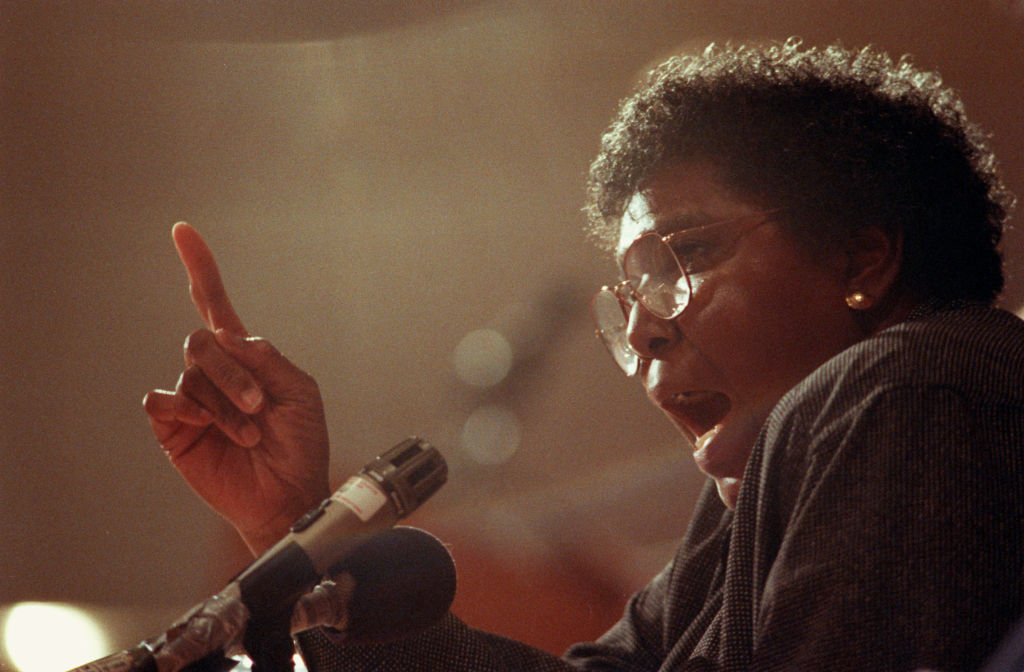Sapelo 7: Ben Crump Calls For Federal Investigation After Deadly Georiga Gangway Collapse

Source: The Washington Post / Getty
UPDATED: 5:00 p.m. ET, Oct. 23
Civil Rights attorney Ben Crump is calling for a federal investigation after seven elderly people were killed when a gangway on Sapelo Island, Georgia, collapsed.
During a press conference on Tuesday at Mt. Sinai Missionary Baptist Church in Jacksonville, Crump stood with the survivors and grieving families and demanded justice for the “Sapelo Seven.”
“Where is the leadership for the Sapelo Seven?” said Crump during the presser. “Where is the leadership?”
Over the weekend, more than 700 people headed about 72 miles south of Savannah to Sapelo Island for a celebration of Gullah Geechee’s history when the gangway leading to the island’s Marsh Ferry Dock collapsed. According to authorities, about 20 people fell into the water after the gangway gave way shortly after the ferry was docked.

Crump, who is representing the families of three of the victims, also called for a federal investigation on every level.
“Had these been seven white people who died on that gangway, you would have federal investigations, you would have resources being offered to the community, you would not let this be swept under the rug,” Crump said. “So we’re calling on the leaders in our country, the ones who are vying for president of the United States, these are the American citizens who need your leadership now.”
https://twitter.com/AttorneyCrump/status/1848837691153998217
The McIntosh County Coroner’s Office identified the victims to WSAV as Jacqueline Crews Carter, 75, of Jacksonville, Florida; Cynthia Gibbs, 74, of Jacksonville; Charles L. Houston, 77, of Darien, Georgia; William Johnson Jr., 73, of Atlanta; Carlotta McIntosh, 93, of Jacksonville; Isaiah Thomas, 79, of Jacksonville; and Queen Welch, 76, of Atlanta.
Heather Houston-Meeks, the daughter of one of the victims, was also on the gangway when it collapsed. She told NBC News that after she made it to shore, some of her father’s co-workers said he tried to help others in need before he passed.
“I’m told that what he was doing when we went in the water was immediately kick it into action and look out for other people and rescue other people,” Houston-Meeks said. “He was until the last second serving others and looking out for others.”
Georgia Department of Natural Resources Commissioner Walter Rabon described the incident as a “catastrophic failure” and noted that an investigation is underway to determine the cause of gangway collapse. He added that multiple agencies, including state and federal authorities, are involved in the investigation.
https://twitter.com/AttorneyCrump/status/1848877245710184680
Rabon also said that the structure was rebuilt in 2021 and underwent inspections regularly but “wouldn’t rule out anything as being a possibility.”
The Gullah Geechee Nation mourned the losses of the victims by posting a message on their X account praying for the families of those lost.
“Praying for the families of the families of those that passed away at Sapelo and the healing of hearts and minds of the survivors,” Gullah Geechee Nation wrote.
for the families of the families of those that passed away at Sapelo and the healing of hearts
and minds of the survivors. Tenki Tenki fa all hunnuh chillun prayin wit we een de @gullahgeechee Nation.https://t.co/v8C2BgqjTW pic.twitter.com/4JOOHdqWzH
— Gullah/Geechee Folks (@GullahGeechee) October 21, 2024
As previously reported by NewsOne, the Gullah Geechee’s history is deeply intertwined with the legacy of America.
In the early 1700s, when what we know as America began to take shape, some Gullah Geechee were able to escape slavery more than 150 years before the start of the Civil War. These fugitive slaves fled south into the Florida peninsula from coastal South Carolina and Georgia. At the time, Florida, which was owned by the Spanish, was nothing more than a swampy jungle.
The Gullah Geechee are direct descendants of Africans who were enslaved on the rice, indigo and Sea Island cotton plantations of the lower Atlantic coast. The Gullah people were known for their distinctive arts, crafts, foodways, music, and language. The Gullahs speak a unique Creole language and are mostly found in the coastal areas of North Carolina, South Carolina, Georgia, and Florida.
SEE ALSO:
Georgia’s Gullah Geechee In Trouble As Zoning Changes Could Mean The ‘Destruction Of The Culture’
The Black Seminoles: How Fugitive Slaves Escaped To Mexico Before The Civil War
window.addEventListener(‘interaction’, function () {
setTimeout(function () {
var s = document.createElement(‘script’), el = document.getElementsByTagName(‘script’)[ 0 ];
s.async = true;
s.src=”https://platform.twitter.com/widgets.js”;
el.parentNode.insertBefore(s, el);
}, 1000)
});





